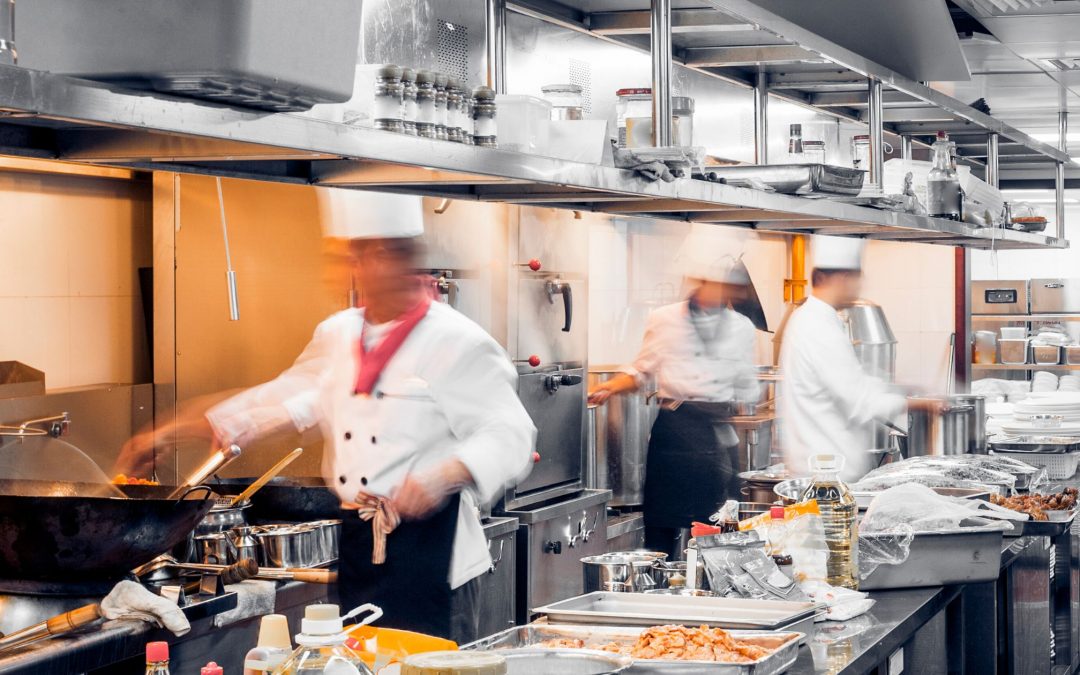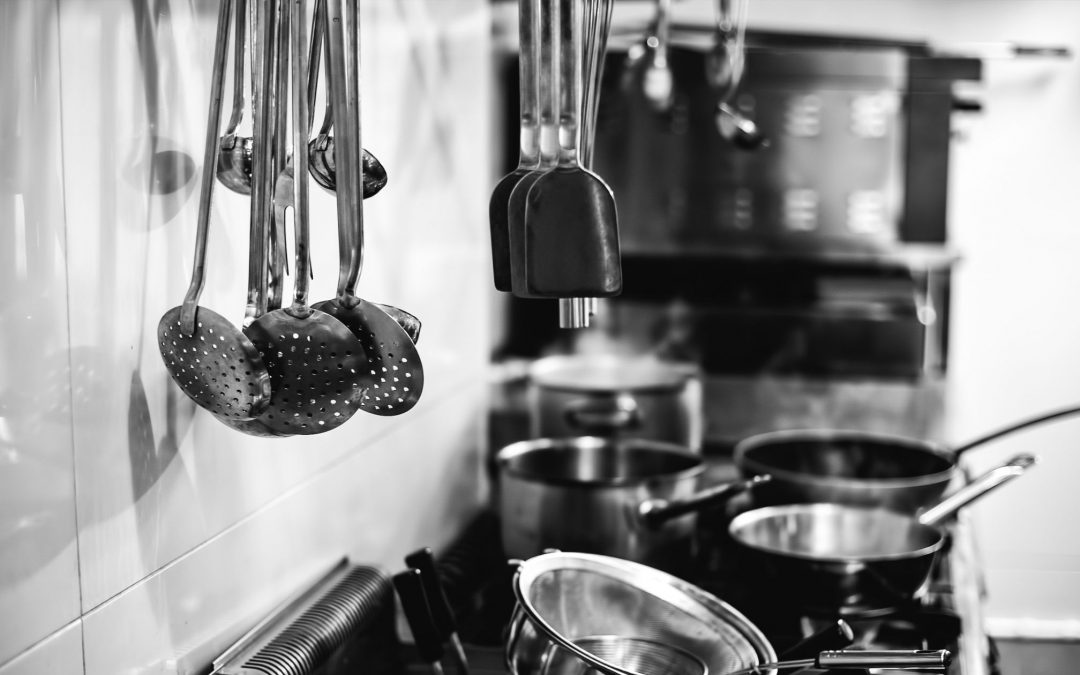Running a commercial kitchen is no small task. Whether you manage a busy restaurant, a school canteen, a care home, or a hospital kitchen the pressure is always on to deliver safe, efficient service. But even the best run kitchens encounter problems that can slow operations, invrease costs, or even compromise safety.
At Marigold Engineers, we’ve seen it all and we know that most issues can be prevented with the right planning and maintenance. Here are the 10 most common commercial kitchen problems we come across, and our advice on how you can avoid them.
1. Equipment Breakdowns in the middle of your busiest services
The Problem: Ovens that won’t heat, burners that aren’t lighting or dishwashers that suddenly stop mid cycle. Downtime during service can cost you both money and customers.
How to Avoid: Schedule regular servicing for your catering equipment. Planned preventative maintenance helps spot wear and tear or even potential issues before it turns into a breakdown.
2. Poor Ventilation and Extraction
The Problem: Kitchens generate a lot of heat, steam and grease. Without proper ventilation, you risk creating an unsafe and unpleasant working environment not to mention failing inspections.
How to Avoid: Ensure your kitchen has a well designed extraction system and stay on top of scheduling routine cleans and filter checks.
3. Inconsistent Temperatures in Refrigeration
The Problem: Fridges or freezers that aren’t holding the right temperature putting food safety at risk.
How to Avoid: Invest in trusted manufactures and carry out regular maintenance and keep temperature logs to catch issues early.
4. Drainage & Plumbing Issues
The Problem: Blocked drains, leaking sinks, or slow water flow can bring your kitchen to a standstill
How to Avoid: Install grease traps, maintain drains properly, and get small leaks checked before they escalate into major problems.
5. Gas and Electrical Safety Risks
The Problem: Faulty gas lines or electrical connections can be dangerous and may lead to shutdowns.
How to Avoid: Always use a Gas Safe registered engineers and qualified electricians for installations, repairs and annual safety checks.
6. Inefficient Kitchen Layout
The Problem: A poor layout slows service, increases the risk of accidents, and makes staff less productive.
How to Avoid: Plan your kitchen design carefully, ensuring equipment placement supports workflow, safety and compliance.
7. High Energy Costs
The Problem: Outdated or inefficient equipment can drive energy bills.
How to Avoid: Upgrade to energy-efficient appliances and maintain them regularly to ensure optimal performance.
8. Grease Build Up in Extraction Systems
The Problem: Grease not only creates fire hazards but also reduces ventilation efficiency.
How to Avoid: Stick to a cleaning schedule and book professional deep cleans for extraction systems.
9. Unreliable Hot Water Supply
The Problem: Dishwashing, cooking and cleaning all rely on a consistent hot water supply. A breakdown here can halt operations.
How to Avoid: Have your boilers and water heaters aerviced regularly to prevent unexpected failures.
10. Failing Health and Safety Inspections
The Problem: Non-compliance can lead to fines, shutdowns or reputational damage.
How to Avoid: Stay on top maintenance, safety checks and staff training so you’re always inspection ready.
Final Thoughts
Most commercial kitchen problems are preventable with regular maintenance, smart design, and expert installation. At Marigold Engineers, we help businesses across Essex and beyond keep their kitchens running smoothly from planned servicing to full kitchen design and installation.
If you’d like to discuss how we can support your kitchen, get in touch with our team today.

Designing a Commercial Kitchen for Workflow: What You Need to Know
A well designed commercial kitchen is not just about shiny new equipment or stylish finishes, it's about workflow. The way your kitchen is laid out can make the difference between smooth, efficient service and constant hold ups. Whether you're planning a new kitchen...

How our Planned Preventative Maintenance Plans Work (And Why Our Clients Love Them)
Commercial Kitchens are fast paced environments where downtime isn’t just inconvenient, it’s costly. That’s why our Planned Preventative Maintenance (PPM) plans are built to keep your kitchen running smoothly and minimise breakdowns, that’s why our clients love them....

Choosing The Right Commercial Catering Equipment: What To Consider
Equipping a commercial kitchen is a major investment that directly impacts your kitchen’s efficiency, food quality and compliance with industry standards. Whether you’re launching a new restaurant, upgrading a care home kitchen, or improving a school canteen, the...

5 Signs Your Kitchen Equipment Could Need A Health Check
Spot the Red Flags Before They Cost You Time and Money Running a commercial kitchen is fast-paced and high-pressure there's no room for delays or downtime. When essential equipment starts to falter, it doesn’t just reduce efficiency it can bring your entire operation...

FOG Under Control: How GreaseShield Is Changing the Game
Keeping Kitchens Flowing: The Critical Role of FOG Compliance When we think about...

UK Commercial Kitchen Regulations Explained: A 2025 Guide for Restaurants & Caterers
Running a commercial kitchen in the UK? Whether you're opening a new restaurant in London or managing a catering facility in Suffolk, understanding the latest regulations is crucial to avoid penalties, delays, or shutdowns. From food hygiene and fire safety to gas...

Why Choose a ceda Specialist for Your Commercial Kitchen?
Why Choose a ceda Specialist for Your Commercial Kitchen?When you're running a busy kitchen, the last thing you want is uncertainty about your equipment or the people installing it. Choosing a specialist who’s part of ceda can give you peace of mind. But what does...

Top 5 Common Injuries in Commercial Kitchens and How to Avoid Them
In the high-pressure environment of commercial kitchens, safety is paramount. Neglecting proper safety protocols can lead to severe injuries, as evidenced by real-world incidents. For instance, a cook suffered extensive burns after slipping on a wet floor and...

Small Kitchen, Big Ambitions: Maximising Efficiency in Tight Spaces
Struggling to Keep Up on Busy Nights? Here’s How to Fix ItFriday and Saturday nights—your kitchen is at full capacity, orders are flying in, and suddenly, the bottlenecks begin. Dishes pile up, prep stations become chaotic, and customers wait longer than they should....

5 Hidden Dangers That Could Shut Your Commercial Kitchen Down
Running a commercial kitchen is demanding, with tight schedules, food safety regulations, and customer expectations all adding pressure. While most businesses focus on food quality and service, hidden dangers can quickly lead to fines, forced closures, or even legal...

